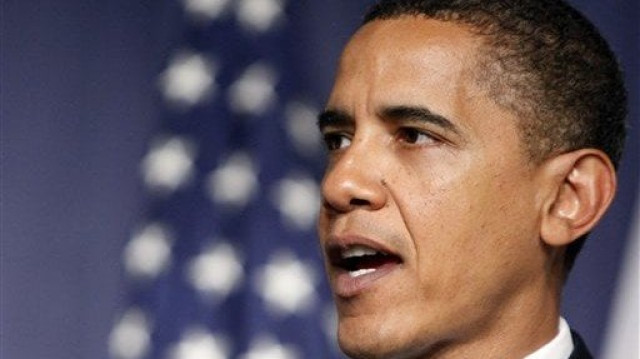New security strategy to lay out Obama doctrine

Speaking about the new new national security strategy, John Brennan, deputy national security advisor for counter-terrorism and homeland security appeared to deliver the White House's most explicit rejection yet of "war on terror" terminology in defining its thinking about the problem.
"The president's strategy is absolutely clear about the threat we face. Our enemy is not terrorism because terrorism is but a tactic."Our enemy is not terror because terror is a state of mind and, as Americans, we refuse to live in fear.
"Nor do we describe our enemy as jihadists or Islamists because jihad is holy struggle, a legitimate tenet of Islam meaning to purify oneself or one's community."
Obama will also de-emphasise the "war on terror" concept favored by the former administration of George W. Bush, which drove US foreign policy for years after the September 11 attacks of 2001, when he releases the strategy on Thursday.
In the new national security strategy, the administration is also likely to stress that US military superiority must be matched by muscular diplomacy and all the tools of statecraft, from development aid to intelligence.
The new document will be released with the United States still with a huge foreign military commitment, in Iraq and Afghanistan, facing new terror threats and with the world destabilised by the worst economic meltdown since the 1930s.
It will be closely read for signs Obama has adjusted his policy of offering dialogue to US foes like Iran and North Korea, which has yet to bear fruit, and will come against a backdrop of his bedrock nuclear non-proliferation effort.
Secretary of State Hillary Clinton will make a major speech on Thursday at the Brookings Institution, laying out diplomatic and military aspects of the strategy and national security advisor James Jones was due to weigh in later.
For the first time, the government strategy document, which lays down a doctrine for national security policy, and can impact defense spending, is likely to focus attention on the threat posed by homegrown, radical extremists. Following a spate of attacks or near misses -- at Fort Hood military base last year and in Times Square, New York, this month -- the administration appears to have reframed the matrix of threats to US national security. "We've seen an increasing number of individuals here in the United States become captivated by extremist activities or causes," said Brennan.
"The president's national security strategy explicitly recognises the threat to the United States posed by individuals radicalised here at home," Brennan said on Wednesday at the Center for Strategic and International Studies.
"We've seen individuals, including US citizens, armed with their US passport, travel easily to terrorist safe havens and return to America, their deadly plans disrupted by coordinated intelligence and law enforcement."
Faisal Shahzad, the top suspect in the failed car bombing in Times Square on May 1, is a naturalised US citizen, who allegedly became radicalised after years in the United States and received training by Pakistani extremists. Major Nidal Hasan, an American-born army psychiatrist who is the only suspect in the killing of 13 people at Fort Hood army base last year, was allegedly drawn to radical thought while serving in the armed forces.
Brennan said that "unprecedented" pressure ratcheted on al Qaeda since Obama took office has severely limited the group's ability to move, raise funds, recruit and carry out attacks. But he said the network was now relying on poorly trained "foot soldiers" who might be able to slip past US defenses because they do not fit the conventional profile of a terrorist. "This is the new phase of the terrorist threat, no longer limited to coordinated, sophisticated, 9/11 style attacks," Brennan said. "As our enemy adapts and evolves their tactics, so must we constantly adapt and evolve ours."
Brennan said that Obama had a single-minded focus on his goal to disrupt, dismantle and destroy al Qaeda. In his last national security strategy in 2006, ex-president George W. Bush targeted terrorism as a concept much more specifically, declaring boldly "the war on terror is not over." Brennan said that Obama envisaged using the full arsenal of diplomatic, military, developmental, law enforcement, intelligence and homeland security powers available to a US president.



















COMMENTS
Comments are moderated and generally will be posted if they are on-topic and not abusive.
For more information, please see our Comments FAQ